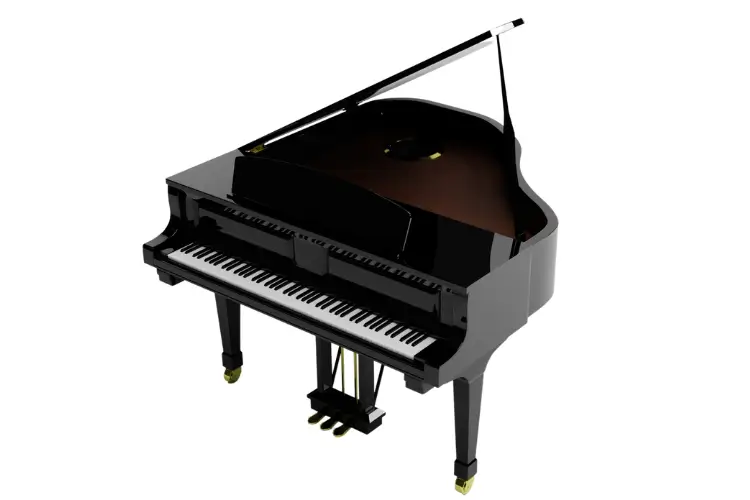Music theory forms the bedrock of musical understanding, serving as the universal language for composers, performers, and enthusiasts alike. Embracing it not only enhances one’s technical abilities but also deepens the emotional connection to music. Whether you’re a beginner or a seasoned musician seeking to expand your knowledge, embarking on a journey to master music theory can be a fulfilling endeavour. So, this comprehensive guide will explore practical strategies and nuanced approaches for efficient and effective learning, all while emphasising the pivotal role of piano keyboards in grasping theoretical concepts.
- Start With the Basics
Commence your musical expedition by immersing yourself in the fundamental building blocks of music theory. Delve into the rudimentary aspects, acquainting yourself with the musical alphabet, notes, intervals, and scales. Familiarise yourself with key signatures, time signatures, and the foundational concepts of rhythm and harmony. Understanding these bedrock principles lays a robust foundation upon which to construct more advanced musical knowledge.
- Practise Regularly
Consistent practice serves as the cornerstone of mastering music theory. Dedicate focused practice sessions regularly to reinforce your understanding and skillset. Employ piano keyboards or any instrument available to experiment with scales, chords, and melodies. This hands-on approach not only solidifies theoretical concepts but also cultivates an intuitive understanding of how theory translates into musical expression.
- Utilise Online Resources
You may harness the power of digital resources. Explore an array of interactive websites, video tutorials, and mobile applications designed to make music theory engaging and accessible. These platforms offer a dynamic range of exercises, quizzes, and visual aids that facilitate a comprehensive understanding of theoretical concepts.
- Explore Books
Immerse yourself in the knowledge imparted by comprehensive music theory books. Seek out well-recommended texts that cater to your proficiency level and learning objectives. Quality books often provide detailed explanations, extensive exercises, and examples, serving as invaluable companions in your quest to unravel the depths of music theory.
- Apply Theory to Practical Situations
Bridge the gap between theory and practice by immersing yourself in real musical compositions. Analyse sheet music, dissect the theoretical underpinnings and bring them to life on piano keyboards. This experiential learning reinforces theoretical understanding while fostering creativity and interpretation.
Utilise the interactive features of modern keyboards, such as digital interfaces or pre-programmed exercises, to simulate various musical scenarios and further reinforce theoretical concepts in a practical, hands-on manner. The nuanced capabilities of this musical instrument will enhance your learning experience, offering dynamic tools for musical exploration and expression.
- Seek Guidance from Instructors or Peers
Engage with music teachers, mentors, or fellow musicians to gain invaluable insights and guidance. Participate in communities, forums, or workshops where experienced individuals share their expertise. Interacting with peers and mentors not only offers guidance but also infuses inspiration and motivation into your learning journey.
- Break Down Complex Concepts
Deconstruct complex concepts into manageable fragments. Focus on comprehending one facet at a time, gradually assimilating more intricate elements. As such, embrace the process of incremental learning, allowing each piece of understanding to build upon the foundation of the previous.
- Create Mnemonics and Memory Aids
Employ mnemonic devices, acronyms, or memory aids to solidify retention of essential concepts. Crafting personalised memory aids helps simplify complex theories, making them more accessible and memorable during practice or examinations. These mnemonic strategies serve as invaluable tools to reinforce understanding and recall.
Conclusion
Mastering music theory demands dedication, perseverance, and a profound love for the art. By incorporating these multifaceted strategies—beginning with foundational knowledge, regular practice, leveraging resources like piano keyboards, and seeking guidance from mentors—your journey to master music theory will be both rewarding and enlightening. So, love your learning process, relish the discoveries along the way, and let the profound understanding of the subject enrich your musical endeavours.
Written by: Alexander Potter




